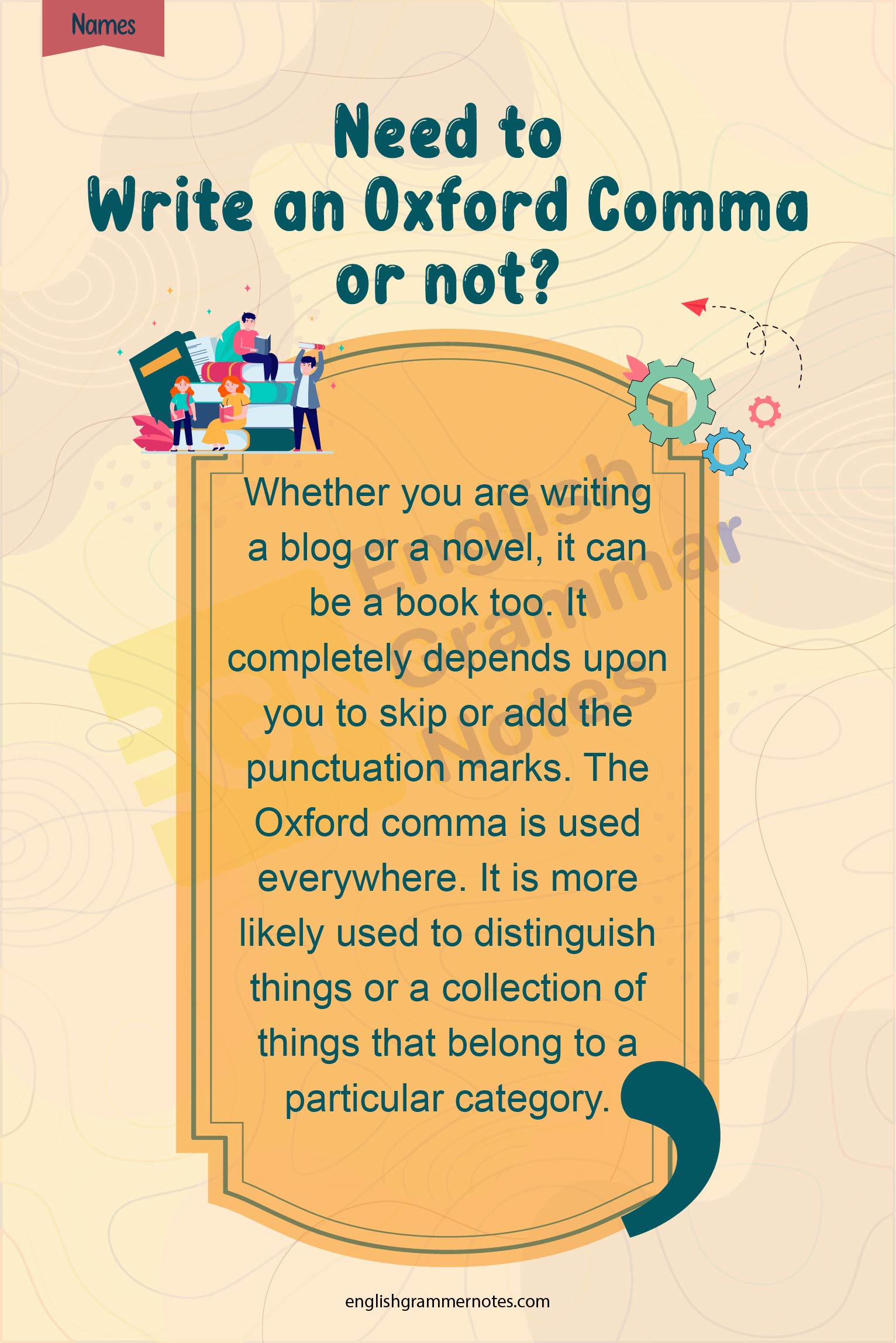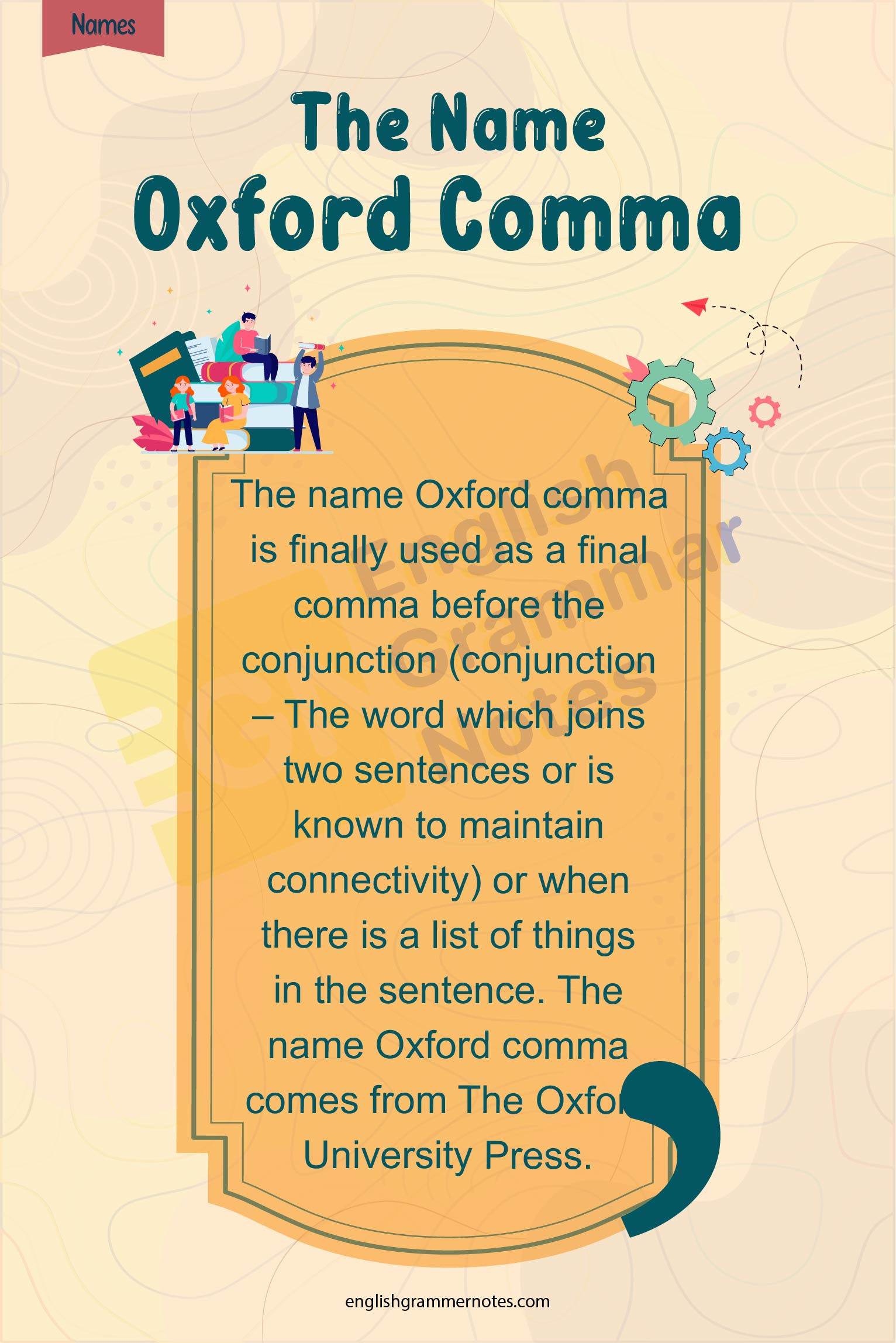Oxford Comma: Oxford should be used properly; if it is not used properly, it will create misunderstanding in the reader’s mind. Let us understand this through an example.
Arjita will attend the party with her sisters, Akriti and Jagriti.
In the above example, the reader will understand that Arjita will attend the party along with her sisters and two more girls Akriti and Jagriti. However, in the second example, it is clarified that Arjita will attend the party with her two sisters named Jagriti and Akriti. So through the second example, the sentence is explained more precisely, and the reader will understand it well.
How To Use Oxford Comma?
- Do you Need to Write an Oxford Comma or not?
- From Where Is The Name Oxford Comma Derived?
- Conclusion on Oxford Comma
Do you Need to Write an Oxford Comma or not?
Whether you are writing a blog or a novel, it can be a book too. It completely depends upon you to skip or add the punctuation marks. The Oxford comma is used everywhere. It is more likely used to distinguish things or a collection of things that belong to a particular category.
It depends completely on the efficiency and writing proficiency of the writer and how he tackles the usage of the Oxford comma and frames the sentences in a variant manner. You can frame it the way you want, and using it or not using it depends upon you completely.

From Where Is The Name Oxford Comma Derived?
The name Oxford comma is finally used as a final comma before the conjunction (conjunction – The word which joins two sentences or is known to maintain connectivity) or when there is a list of things in the sentence. The name Oxford comma comes from The Oxford University Press.
Conclusion on Oxford Comma
The Oxford comma is used at several places and is usually used to distinguish a list of things. In this blog, you will find relevant information related to the Oxford comma and examples that depict its meaning. Make certain that you go through it because it can prove to be highly beneficial if you are fascinated with the proper usage of the Oxford comma.
